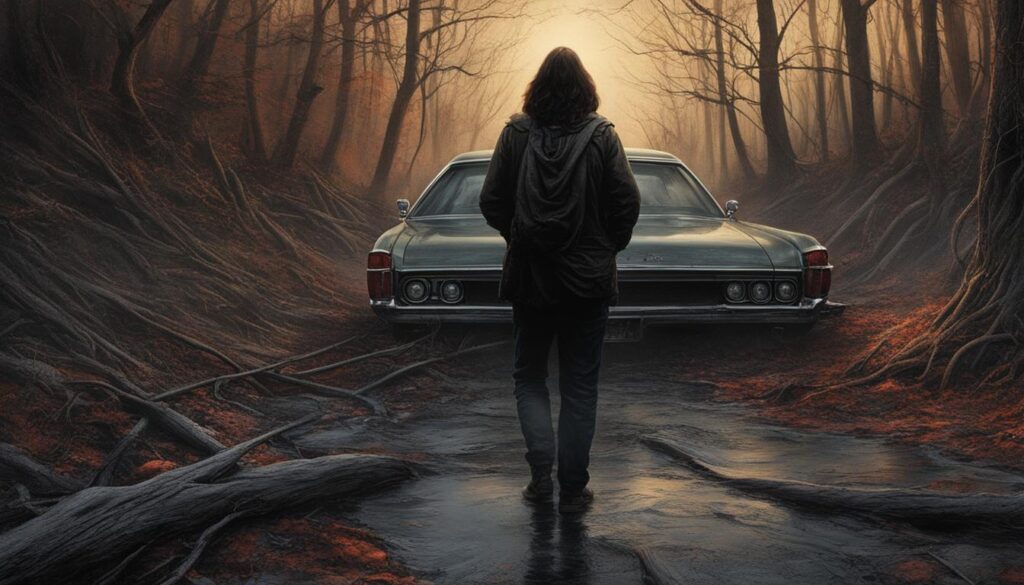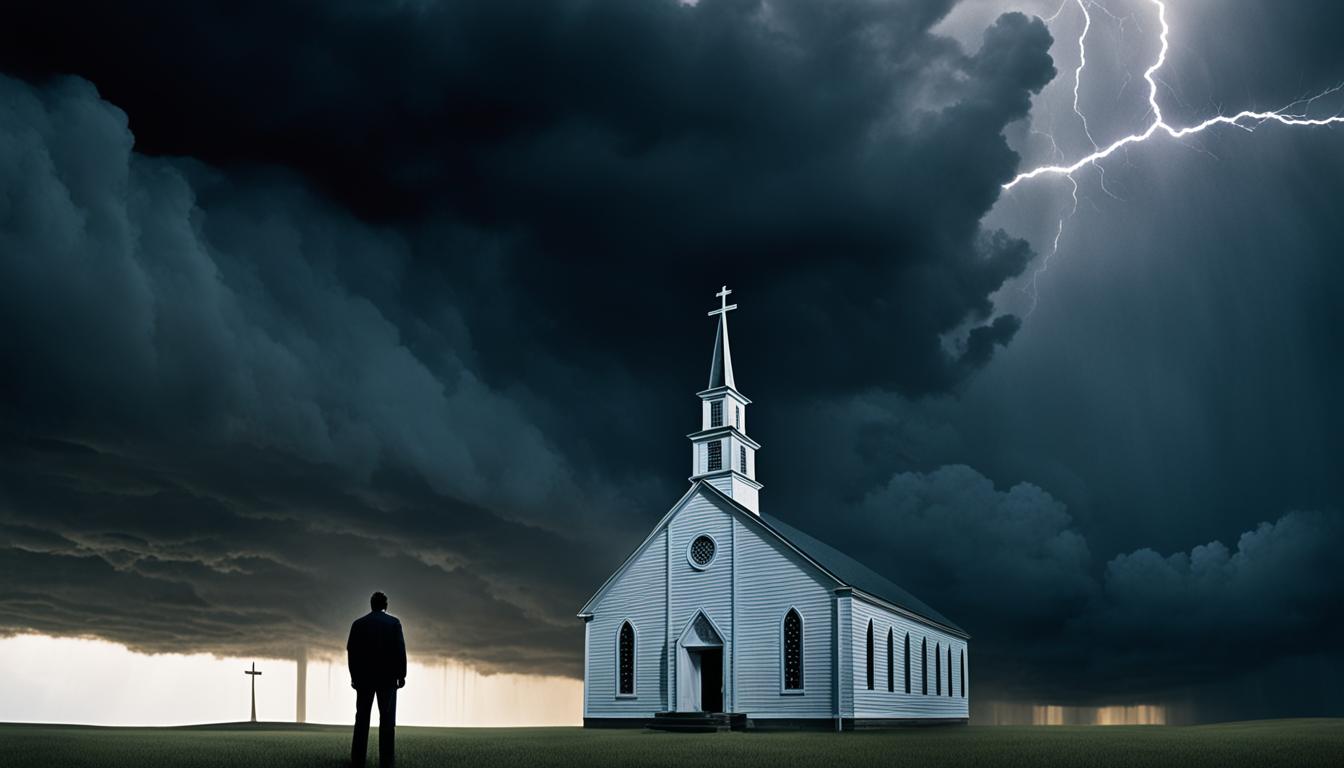Stephen King is a well-known American author with a vast library of works that explore the dark and macabre. However, his writing is not limited to horror and suspense alone, as some of his novels and short stories touch on themes of religion, faith, and spirituality. Stephen King’s personal views on Christianity and how they reflect in his writing have been the subject of much curiosity, debate, and analysis. In this article, we will delve into Stephen King’s views on Christianity and how they manifest in his literary works.
Key Takeaways
- Stephen King’s views on Christianity have influenced his writing in various ways.
- King frequently explores themes of good versus evil, religious symbolism, and moral dilemmas in his works.
- King has expressed skepticism towards organized religion, but his personal spirituality remains a topic of interest.
- Some of King’s works have been criticized for their portrayal of Christianity, while others have been praised for their exploration of complex religious ideas.
- In our article, we will examine the nuances of Stephen King’s views on Christianity and how they are represented in his writing.
Stephen King’s Background and Childhood
Stephen King was born in Portland, Maine in 1947. His father left the family when he was young, and his mother struggled to provide for him and his brother. Growing up, King developed a fascination with horror and science fiction, devouring books and movies in these genres.
Despite attending a Methodist church as a child, King has spoken about his skepticism towards organized religion and his own personal beliefs. However, his background and childhood experiences may have influenced the themes and motifs present in his writing.
King has mentioned that his mother’s fear of Catholicism and the rituals associated with it, such as confession and communion, made a strong impression on him. This fear and distrust of religious authority is evident in many of his novels and characters.
King’s experiences growing up in a small, rural town in Maine also likely influenced his writing. Many of his stories are set in similar small towns, with their own secrets and supernatural happenings.
Overall, while King’s personal beliefs may not align with traditional Christian teachings, his background and childhood experiences undoubtedly shaped the themes and motifs present in his works.
Themes of Good vs. Evil in Stephen King’s Works
Stephen King’s literary contributions often center around themes of good vs. evil, a common thread running through many of his stories. This recurring theme is particularly evident in his horror and supernatural works, where the struggle between good and evil often takes center stage.
King’s depiction of evil is often disturbingly realistic, while his portrayal of good tends to be flawed, yet hopeful. He explores the human psyche, delving deep into the complexities of morality and ethics.
Many readers have noted the religious undertones in King’s writing, especially in his earlier works. The battle between good and evil within the context of Christianity is a recurring theme in many of his stories. While King has never explicitly discussed his religious beliefs, it is clear that Christianity has influenced his writing.
One example of this theme is “The Stand,” where a group of survivors of a deadly virus are divided between good and evil. The climax of the story is the final battle between these two factions, where the characters must decide which side they will fight for, and ultimately, which side they will die for.
“The concept of good vs. evil is a fundamental theme in human existence, and it is no surprise that it appears so frequently in literature, including Stephen King’s works.”
Religious Symbolism in Stephen King’s Novels
Stephen King’s works are known for their intricate plots and compelling characters, but one recurring element that often flies under the radar is the extensive use of religious symbolism throughout his novels. Although King has described himself as a “non-believer,” he has also spoken about how his upbringing in a religious household has influenced his writing.
The use of religious symbols is particularly prevalent in novels such as Carrie, The Stand, and The Dark Tower series. In Carrie, for example, the titular character experiences a religious awakening that is symbolized by the stigmata-like wounds that appear on her body. In The Stand, the battle between good and evil is strongly tied to religious imagery, with the protagonist being guided by prophetic dreams and divine intervention.
King’s use of religious symbolism can be interpreted in a number of ways, with some readers seeing it as a commentary on the role of faith in contemporary society and others viewing it as a way to create a sense of otherworldliness and mysticism in his works. Regardless of the interpretation, it is clear that King’s use of religious symbolism adds a layer of depth and complexity to his writing that keeps readers engaged and eager to explore the many hidden meanings in his works.
Moral Dilemmas and Redemption in Stephen King’s Stories
Stephen King’s works are often characterized by complex moral dilemmas faced by his characters. His vivid portrayal of human nature and their struggles with right and wrong make King’s narratives a thought-provoking experience. These stories often reflect Christian teachings of morality, sin, and redemption.
In many of his books, characters are forced to confront their mistakes and take responsibility for their actions. Through their redemption, King also explores the notion of grace, a fundamental theme in Christianity.
One of King’s most iconic characters, Carrie White, is a perfect example of this. She faces moral dilemmas throughout the story, and ultimately, the story ends on the note of redemption. Though carried out in a dramatic and terrifying way, her behavior is relatable and conveys a message of learning and redemption that aligns with Christian teachings.
King’s portrayal of moral complexity and themes of redemption adds depth to his works and provides a unique perspective on Christian teachings.

Stephen King’s Skepticism towards Organized Religion
Stephen King’s portrayal of organized religion in his works is often met with skepticism, as the author himself is known for being critical of religious institutions. He has stated that while he believes in a higher power, he finds organized religion to be flawed and human-made.
King’s skepticism is evident in his portrayal of religious characters and institutions in his writing. For example, in his novel, “Revival,” the protagonist becomes disillusioned with religion after a tragic event, leading him down a dark path.
“I hate all holy men and holy women. They’re all fakes,” King once said in an interview with Rolling Stone magazine.
Despite his skepticism of organized religion, King often explores themes of faith and spirituality in his writing. He has stated that he finds inspiration in Eastern philosophy and Jungian psychology, among other sources.
Overall, Stephen King’s views on organized religion are complex and multifaceted. While he may be critical of religious institutions, his exploration of faith and spirituality in his works suggests a deeper appreciation for the human search for meaning and purpose.
Personal Faith and Spirituality in Stephen King’s Life
While he is famously critical of organized religion, Stephen King has spoken frequently about his personal faith and spirituality. He has described himself as a “temperamental agnostic,” acknowledging that he has doubts about the existence of God but remains open to the possibility. In a 2013 interview with The Guardian, he said:
“I choose to believe that God exists, and therefore I can say things like, ‘Well, OK, I do not understand why this is happening,’ or ‘Why are we doing this to each other?’ But in the end, when you get a cancer diagnosis or you get terminal something or you get hit by a car or whatever, you suddenly find yourself lonely and in the dark, and you have to cling to something or you’re in real trouble. And belief in God is pretty much the best thing out there for that.”
King’s belief in a higher power is often reflected in his writing, particularly in stories that deal with themes of redemption and second chances. In The Green Mile, for example, the character of John Coffey is described as a Christ-like figure, complete with miraculous healing powers, while in The Stand, a group of survivors fight against a demonic figure known as Randall Flagg.
King has also been known to incorporate elements of Eastern spirituality into his work, such as in the novel The Dark Tower IV: Wizard and Glass, which features a character who practices a form of meditation similar to Zen Buddhism.
Despite his ambivalence towards organized religion, Stephen King’s personal faith and spirituality continue to be important influences on his life and his writing.
Stephen King’s Exploration of the Dark Side of Christianity
Stephen King’s works often tackle controversial topics, and his exploration of Christianity is no exception. While some authors choose to focus on the positive aspects of faith, King delves into the darker side of religion, particularly Christianity.
Religious fanaticism and hypocrisy are recurring themes in King’s novels. In books like “Carrie” and “Needful Things,” he portrays religious zealots who use their faith to justify horrific actions. In “The Mist,” the religious characters are shown to be blind to the true nature of the threat they face, ultimately leading to disaster.
One of King’s most controversial works, “The Stand,” is a post-apocalyptic tale in which the forces of good and evil ultimately clash. The novel features Christian imagery and themes such as the battle between God and Satan, and the ultimate redemption of the main character, Stu Redman. However, King also explores the negative consequences of religious extremism and the harm that can be done in the name of faith.
Overall, King’s exploration of the dark side of Christianity is an intriguing and thought-provoking aspect of his writing. While some may find it controversial, it is clear that his intention is to challenge readers’ beliefs and encourage them to think critically about faith and its role in society.
Controversy and Criticism of Stephen King’s Portrayal of Christianity
Stephen King’s exploration of Christianity in his works has been a subject of both controversy and criticism. While some readers appreciate the complex and nuanced exploration of faith, others have accused King of being anti-religious or even blasphemous.
King’s portrayal of religious characters and institutions, particularly in his early works, has been a particular source of contention. Some readers argue that he presents Christianity in a negative light, focusing on the darker aspects of the religion such as religious fanaticism and hypocrisy. Others contend that King is simply holding a mirror up to society and reflecting the flaws and contradictions of organized religion.
Despite the criticism, King’s works have also been praised for their exploration of faith and morality. He has been lauded for his ability to create complex characters with conflicting beliefs and motivations, allowing readers to examine their own beliefs and values in a new light.
Ultimately, Stephen King’s portrayal of Christianity remains a divisive topic among readers and critics alike. While some may find his exploration of faith challenging or even offensive, others find it thought-provoking and illuminating.



